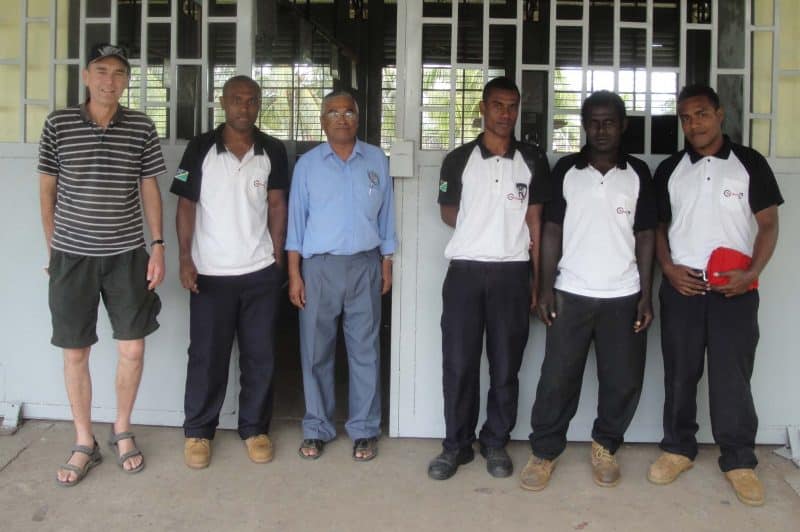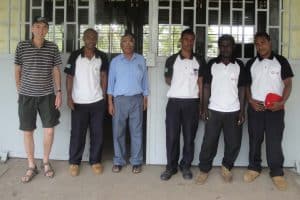by ROWENA OREJANA
Having less time as an overseas volunteer has definite advantages, says Mahitahi volunteer Rob Powell.
Mr Powell, who recently returned from the Solomon Islands after helping train electrical instructors at Don Bosco Technical Institute there, said having only a six-week timeframe to work forced him to trim down his agenda and prioritise the work to be done.
Less time forced a volunteer to focus on goals, allowing the community to learn how to do things rather than doing things for them, he said.
Mr Powell said he had done volunteer work about 25 years earlier in Papua New Guinea and had once again found the enthusiasm to do that.
“Probably one of the most important relearnings [I had] about volunteering is that the coverage grows like crazy and to get somewhere you really need to balance yourself,” he said.
Mr Powell’s background is engineering, primarily in telecommunications.
“I was able to revitalise my interest around vocation centres, rural training centres, in the Solomon Islands. But many of the things that I’ve seen in Papua New Guinea were the same. Obviously, things have moved on in 25 years,” he said.
There were a lot of differences, but there were some underlying aspects that are still quite similar, he noted.
“Many things I found personally inspiring to see [included] the level of commitment, what was actually happening
and what the volunteers in between have achieved. And that whet my appetite for doing something more.”
At Don Bosco Mr Powell worked with the instructors to simplify the technical modules that the students were using,
sometimes cutting down an instruction manual into a manageable size so that the students can easily grasp the idea.
He said the manual they were using, which was a photocopy of a photocopy of a photocopy, wasn’t really working.
He said what was positive was the local instructors at Don Bosco were clear on what they wanted in the module.
“We got into a joint kind of way of working. They could see that something was going to happen. It stopped me doing the job [for them], which I think is a danger. The moment you got a long term commitment, then you are seen as being able to do long term things,” he said.
At the brainstorming, Mr Powell would ask them what they think needs to be included in the module, what needs to be
discarded, and offered suggestions of his own. Realising that his time there was limited, they were able to produce a module within 36 hours.
Mr Powell said the module was used within week three. “They used that in class for two weeks. So before I came back [to New Zealand], they were giving me feedback on how they were using it,” he said.
He said the students told him they liked the progression of ideas in the new booklet and that it actually worked for them.
Mr Powell admitted it would be hard to build relationships in a short time, but he was lucky that he worked really well with the Don Bosco instructors.


Reader Interactions